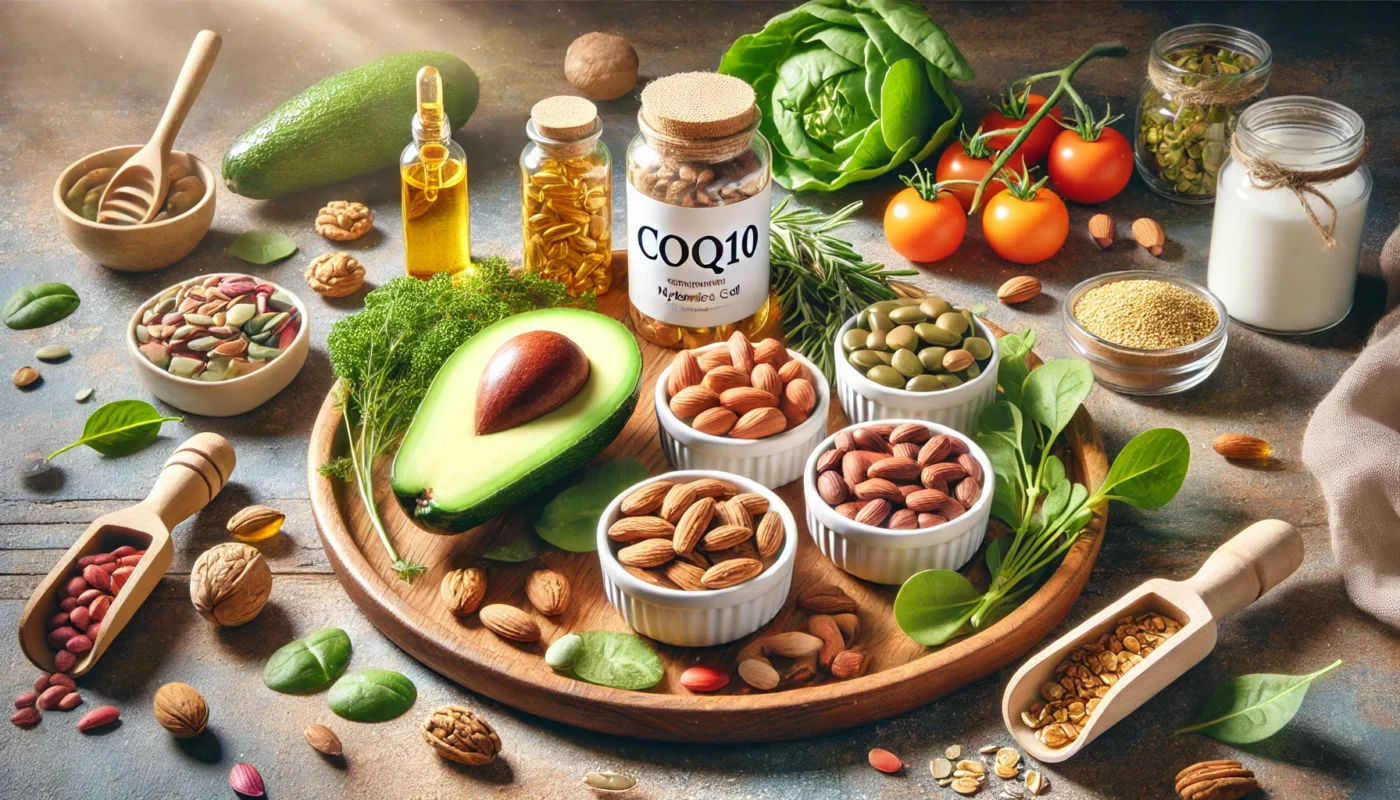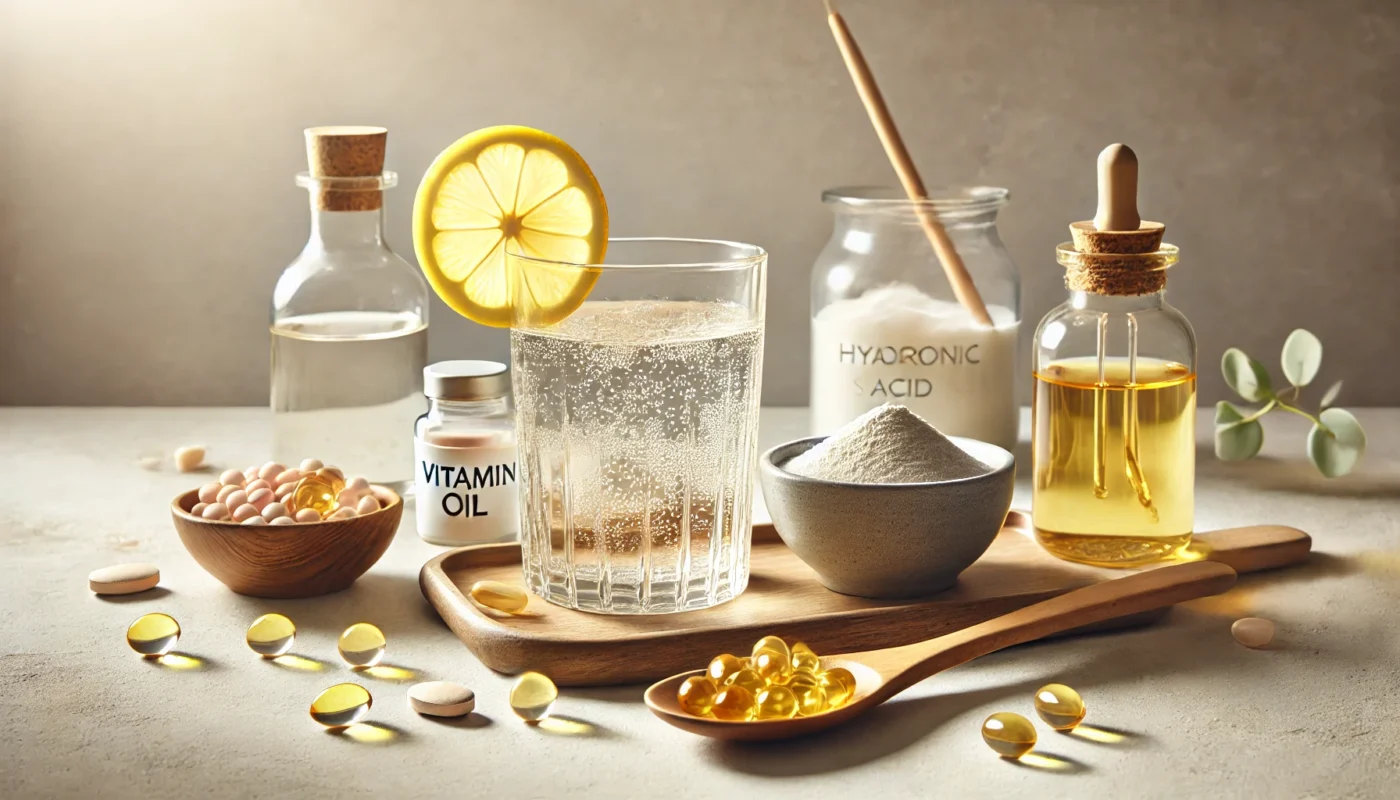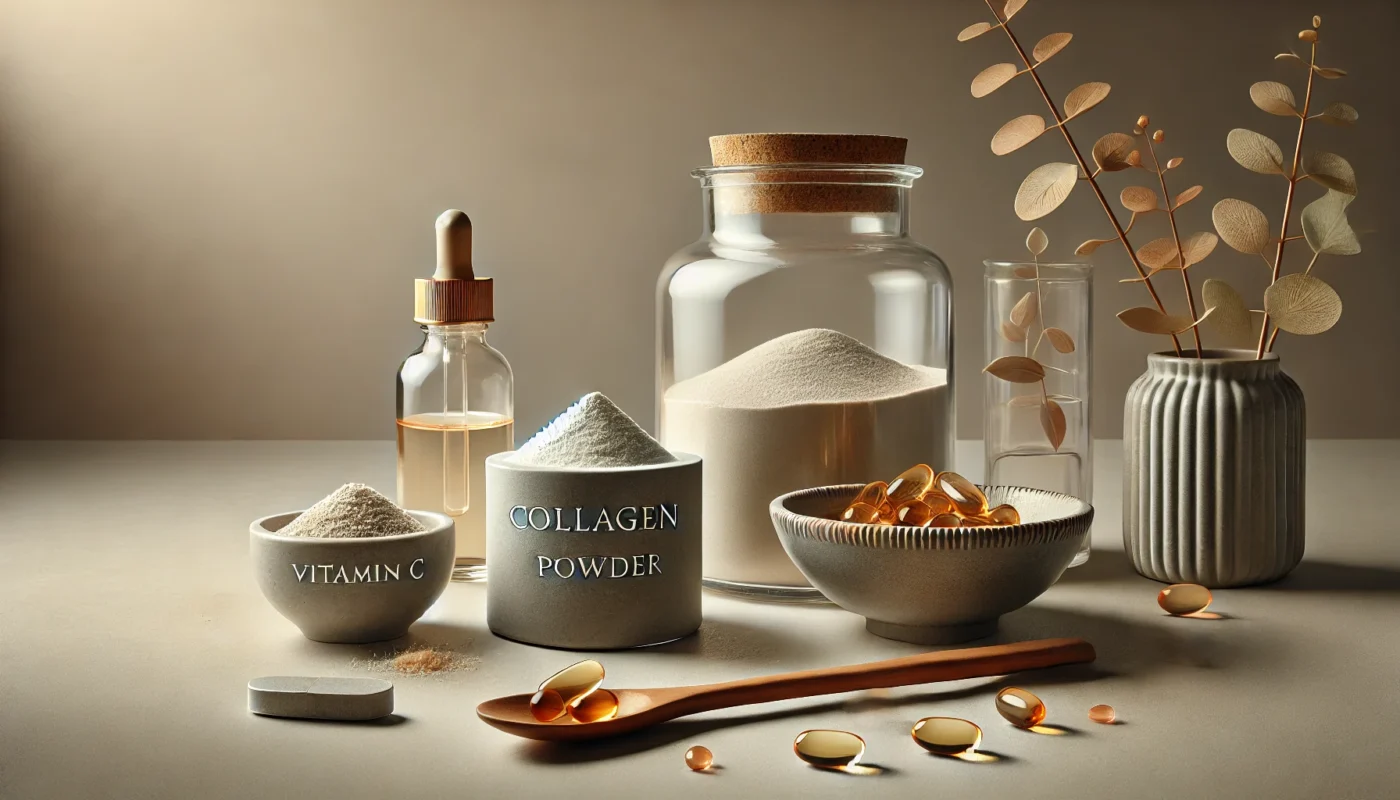Skin elasticity is a key factor in maintaining a youthful appearance. It’s what gives our skin the ability to bounce back after being stretched or compressed.
However, as we age, our skin naturally loses some of its elasticity. This can lead to wrinkles, sagging, and other signs of aging.
Fortunately, there are ways to boost skin elasticity. One of these is through the use of supplements.
Supplements can provide our bodies with the nutrients they need to support healthy skin. They can help to stimulate collagen production, hydrate the skin, and protect against oxidative damage.
In this article, we will explore the top supplements for skin elasticity. We will delve into the science behind how these supplements work and provide practical advice on how to incorporate them into your daily routine.
Whether you’re a fitness enthusiast, a health enthusiast, or a medical patient, this article will provide you with the information you need to make informed decisions about your skin health.
So, if you’re ready to learn more about how to boost your skin’s elasticity and achieve a more youthful appearance, read on. This comprehensive guide is here to help you understand and navigate the world of skin health supplements.
You may also like: Top Supplements to Speed Up Injury Recovery
Understanding Skin Elasticity and Its Importance
Skin elasticity is crucial for maintaining a youthful and healthy look. It allows the skin to stretch and return to its original shape. This elasticity is primarily due to the presence of proteins like collagen and elastin in the dermis layer.
As we age, collagen and elastin production naturally decrease. This leads to less flexible skin, resulting in wrinkles and sagging. External factors, such as sun exposure and environmental toxins, can also accelerate this loss.
Several lifestyle factors can influence skin elasticity. Nutrition plays a key role, as a poor diet can negatively affect collagen synthesis. Hydration is another important factor, as well-moisturized skin tends to be more elastic.
Here’s a quick list of factors affecting skin elasticity:
- Age-related decline in collagen and elastin
- Sun exposure leading to UV damage
- Poor nutrition lacking essential vitamins and minerals
- Insufficient hydration levels in the skin
- Environmental pollutants and lifestyle habits
Skin elasticity not only affects appearance but also serves as a sign of overall skin health. Loss of elasticity may indicate underlying issues that require attention. By understanding the importance of skin elasticity, we can better appreciate the need for protective measures. Through informed choices, we can maintain skin health and delay signs of aging.
The Science Behind Skin Elasticity
At the core of skin elasticity are two proteins: collagen and elastin. Collagen provides structure and support, forming a network that maintains skin strength. Elastin, on the other hand, is responsible for flexibility, enabling the skin to bounce back after stretching.
Collagen is the most abundant protein in our skin, making up 75% to 80% of its dry weight. It acts like scaffolding, keeping the skin firm and strong. Elastin fibers, interwoven with collagen, give skin its elastic property. Together, they create the resilience that defines youthful skin.
Over time, the body’s ability to produce collagen and elastin diminishes. This decline starts in your mid-20s, accelerating with age. By the time we reach 50, collagen production can drop by up to 30%. This reduction results in thinner skin, more prone to wrinkles and sagging.
Scientific research has shown that external factors significantly impact skin elasticity. Ultraviolet (UV) radiation can damage collagen fibers, leading to a breakdown in the skin structure. Free radicals, which are unstable molecules from pollution and poor diet, also accelerate collagen degradation.
The biological processes behind collagen and elastin production are complex. Skin cells called fibroblasts produce both proteins, relying on essential nutrients for optimal function. Vitamin C, for instance, is vital for collagen synthesis, acting as a cofactor for enzymes that stabilize collagen molecules.
Understanding the science behind skin elasticity helps explain why certain supplements can be beneficial. By targeting the pathways involved in collagen and elastin production, supplements can support and enhance these natural processes. This knowledge allows for informed decisions when considering methods to maintain or improve skin health.

Key Supplements for Skin Elasticity
Ensuring your skin remains elastic and youthful involves more than just skincare routines. Supplements can play a vital role in maintaining skin elasticity. They work from the inside out, nourishing the skin at a cellular level.
Several supplements are known to enhance skin elasticity. Collagen, hyaluronic acid, and vitamins like C and E are particularly effective. They support the production and maintenance of essential proteins and nutrients required for healthy skin.
Understanding which supplements benefit skin elasticity can be a game-changer. It helps you select the right ones for your needs. Incorporating these supplements into your daily routine can help maintain your skin’s youthful appearance and suppleness over time.
Collagen: The Building Block of Elastic Skin
Collagen is integral to maintaining skin’s structure and elasticity. As we age, collagen production declines, leading to wrinkles and sagging skin. Supplementing with collagen can help counteract this decline.
Collagen supplements are typically derived from animal sources like bovine and marine. They come in hydrolyzed form, making them easier for the body to absorb. Clinical studies show that taking collagen supplements can improve skin elasticity and hydration.
Benefits of collagen supplementation include:
- Improved skin elasticity and firmness
- Reduction in wrinkles and fine lines
- Enhanced skin hydration and moisture retention
Choosing the right collagen supplement is crucial. Look for products that are hydrolyzed for better absorption. Consider supplements combined with vitamin C, which is known to enhance collagen synthesis and its overall effectiveness.
Hyaluronic Acid: Hydration for Supple Skin
Hyaluronic acid is a powerful hydrator that helps skin retain moisture. It is naturally found in the skin, helping keep it plump and hydrated. As we age, hyaluronic acid levels decrease, leading to dry and less supple skin.
Supplementing with hyaluronic acid can restore moisture balance. It attracts water to the skin, enhancing its hydration. Many users report smoother, more supple skin as a result of regular use.
Hyaluronic acid supplements are available in various forms. Choosing a reputable brand ensures you gain the full benefits. Consider combining it with other skin-boosting nutrients like collagen for optimal results.
Vitamin C: Essential for Collagen Synthesis
Vitamin C is a powerhouse antioxidant essential for collagen production. It protects skin cells from damage by free radicals. Vitamin C plays a vital role in stabilizing collagen molecules, which supports firm and elastic skin.
In addition to its role in collagen synthesis, vitamin C enhances skin’s natural defense system. It helps to combat damage from environmental stressors like pollution and UV rays, which can break down collagen.
When selecting a vitamin C supplement, consider those with high bioavailability. Liposomal vitamin C is particularly effective. This form ensures better absorption, maximizing the supplement’s ability to boost collagen and enhance skin health.
Vitamin E: An Antioxidant Powerhouse
Vitamin E is known for its antioxidant properties that protect the skin. It helps neutralize free radicals, preventing damage that can lead to premature aging. Vitamin E supports skin repair and improves elasticity.
As a fat-soluble vitamin, vitamin E is easily absorbed and utilized by the skin. It enhances moisture retention, keeping the skin soft and supple. Regular supplementation can lead to noticeable improvements in skin appearance.
There are various forms of vitamin E supplements available. Natural forms, labeled as d-alpha-tocopherol, offer better bioavailability. Combining vitamin E with vitamin C can further enhance its protective effects.
Omega-3 Fatty Acids: For Skin Barrier Function
Omega-3 fatty acids are vital for maintaining a healthy skin barrier. They help keep moisture in and irritants out, preserving skin’s natural elasticity. These essential fats can improve skin texture and overall health.
Sources of omega-3s include fish oil and flaxseed oil supplements. These supplements support skin hydration and elasticity. Omega-3 fatty acids also have anti-inflammatory properties, which help soothe irritated skin.
Regular intake of omega-3s supports optimal skin function. It enhances skin’s resilience against environmental damage, preventing premature aging. Consider a fish oil supplement with high EPA and DHA content for best results.
Coenzyme Q10 (CoQ10): Reducing Wrinkles
Coenzyme Q10, or CoQ10, is a naturally occurring antioxidant. It provides energy to skin cells, supporting repair and regeneration. CoQ10 helps protect skin from oxidative stress, reducing the appearance of wrinkles.
As we age, CoQ10 levels decrease, leading to diminished skin vitality. Supplementing with CoQ10 can help restore cellular energy. It supports collagen production, improving skin’s firmness and reducing fine lines.
CoQ10 supplements come in various forms. Ubiquinol is a more bioavailable version of CoQ10, ensuring better absorption. Including CoQ10 in your supplement regimen can help maintain youthful, resilient skin.
Additional Beneficial Supplements
In addition to the key supplements already mentioned, other nutrients can bolster skin elasticity. These supplements provide support for skin repair and protection from environmental damage.
- Zinc: Essential for skin repair and collagen production.
- Selenium: Protects skin from oxidative damage.
- Astaxanthin: A potent antioxidant that supports skin health.
Including these supplements in your daily routine adds extra layers of protection. They complement the effects of primary skin elasticity boosters. A comprehensive approach ensures the best outcomes for your skin’s health and appearance.

How to Choose and Use Supplements for Skin Elasticity
Selecting the right supplements for skin elasticity can feel overwhelming with so many options. Start by identifying your specific skin needs. Each supplement serves different purposes, such as hydration, repair, or protection.
It’s crucial to opt for high-quality products. Look for supplements that provide transparency in sourcing and ingredient lists. Third-party testing guarantees that you’re getting what you pay for.
Remember that consistency matters. Supplements should be taken regularly as part of a broader skincare plan. Track your progress to observe any changes in your skin’s texture and elasticity.
Here’s how to choose and utilize these supplements effectively:
- Research: Understand the benefits of each supplement.
- Consult: Discuss with healthcare providers before starting.
- Quality: Opt for reputable brands with proven results.
- Routine: Stick to a daily regimen for best outcomes.
Dosage and Safety Considerations
Knowing the correct dosage for supplements is key to safety and efficacy. Exceeding recommended doses doesn’t equate to better results and may cause harm. Always start with the lowest effective dose, as suggested on the label or by a healthcare provider.
Interactions with medications or other supplements should be considered. Discuss with a healthcare professional to ensure combinations are safe. Personalized advice can help avoid adverse effects and optimize benefits.
Be mindful of the body’s response to new supplements. Monitor for any unusual changes or reactions. Prioritize safety by sticking to guidelines and adjusting when necessary based on professional recommendations.
The Role of Diet and Lifestyle in Enhancing Supplement Efficacy
Supplements work best when paired with a balanced diet and healthy lifestyle. They are not replacements for nutrient-rich foods but complement a nutritious diet. Focus on eating a variety of fruits, vegetables, lean proteins, and whole grains.
Lifestyle factors significantly impact skin health and supplement effectiveness. Adequate hydration, regular exercise, and sufficient sleep contribute to maintaining skin elasticity. Stress management also plays a vital role in overall skin health.
The following habits can enhance the efficacy of supplements:
- Hydrate: Drink plenty of water daily.
- Sleep: Ensure restful sleep, ideally 7-9 hours.
- Exercise: Engage in regular physical activity.
- Reduce Stress: Practice mindfulness or meditation techniques.
Avoiding harmful behaviors like smoking or excessive alcohol consumption further supports skin health. Combine a thoughtful supplement regimen with these positive lifestyle changes for the best results in boosting skin elasticity.
Combining Topical Treatments with Oral Supplements
A multi-faceted approach to skin care offers the best chance of improving skin elasticity. Combining topical treatments with oral supplements provides comprehensive care. Each method targets different aspects of skin health for optimal results.
Topical treatments directly impact the skin’s surface. Ingredients like retinoids and vitamin C serums can promote collagen production. These treatments complement oral supplements, which work from within to nourish the skin.
Creating a balanced routine is key. Apply creams or serums to target areas where loss of elasticity is most noticeable. Regular oral supplements deliver nutrients systemically, supporting underlying skin structures.
Consistency in both application and ingestion ensures that the body and skin receive continuous care. This synergy enhances the skin’s resilience and appearance, resulting in a firmer, more youthful complexion.

Real-Life Success Stories: Supplements and Skin Elasticity
For many, the journey to improved skin elasticity starts with a leap of faith into supplementation. Maria, a 35-year-old fitness enthusiast, credits collagen supplements for rejuvenating her skin’s appearance. After six months of consistent use, she noticed her skin felt smoother and retained moisture better.
Jake, who struggles with dry skin, turned to omega-3 fatty acids to address his concerns. Within a few weeks, he observed a noticeable improvement in his skin’s texture and reduced irritation. The added suppleness and glow convinced him of the efficacy of these supplements.
For Anna, a combination of vitamin C and hyaluronic acid supplements proved transformative. She observed fewer fine lines and experienced an overall boost in skin elasticity. These positive changes inspired her to share her regimen with friends, illustrating the potential of personalized supplementation. Each story underscores the importance of consistency and finding what works for individual needs.
Conclusion: A Holistic Approach to Skin Health
Achieving optimal skin elasticity isn’t solely reliant on supplements. It requires a holistic approach that combines various lifestyle practices. Incorporating a balanced diet rich in essential nutrients complements the effects of supplements.
Regular physical activity enhances blood circulation, delivering nutrients to the skin more effectively. Coupled with hydration and sun protection, these habits foster a resilient and supple skin texture. Prioritizing quality sleep and managing stress are pivotal in this process.
Consulting with healthcare professionals ensures a tailored supplement regimen, maximizing benefits while minimizing risks. Embracing a comprehensive strategy supports skin health beyond the superficial, enhancing overall wellbeing. A mindful approach respects the skin as part of a complex system needing diverse support.
Frequently Asked Questions
Here’s a list of frequently asked questions to provide further insights into supplements for skin elasticity:
- What supplements help with skin elasticity?
- Collagen, hyaluronic acid, vitamin C, vitamin E, omega-3 fatty acids, and coenzyme Q10 are among the most effective.
- How long before I see results from supplements?
- Typically, noticeable changes occur after 6-12 weeks of consistent use.
- Can I take multiple supplements at once?
- Yes, combining supplements can enhance benefits, but consult a healthcare provider for personalized advice.
- Are there side effects to these supplements?
- Generally, they are safe but can cause minor effects like digestive issues. Consult with a doctor for potential interactions.
- Can supplements fully replace topical treatments?
- No, they are best used in conjunction with topical treatments for comprehensive skin care.
Further Reading:
Biopelle: Beauty From the Inside Out: Do Anti-Aging Supplements Work?
Cleveland Clinic: Elastin
Harvard Health Publishing: Considering collagen drinks and supplements?
skin elasticity, supplements, skincare, collagen, hyaluronic acid, vitamin C, omega-3 fatty acids, diet, lifestyle, topical treatments, health, wellness, skincare routine, hydration, stress management, beauty
Important Note: The information contained in this article is for general informational purposes only, and should not be construed as health or medical advice, nor is it intended to diagnose, prevent, treat, or cure any disease or health condition. Before embarking on any diet, fitness regimen, or program of nutritional supplementation, it is advisable to consult your healthcare professional in order to determine its safety and probable efficacy in terms of your individual state of health.
Regarding Nutritional Supplements Or Other Non-Prescription Health Products: If any nutritional supplements or other non-prescription health products are mentioned in the foregoing article, any claims or statements made about them have not been evaluated by the U.S. Food and Drug Administration, and such nutritional supplements or other health products are not intended to diagnose, treat, cure, or prevent any disease.

